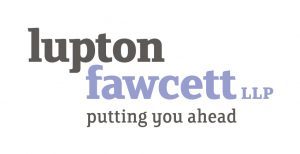The challenges of scaling up

By Clive Lawrence, head of intellectual property and commercial law at Lupton Fawcett
A wise businessman once told me, “Every plan survives intact until the first engagement with the enemy.”
Moving from the start-up phase of a business to the scale-up phase is a path liberally sprinkled with obstacles, if not incoming artillery fire. That first business plan now protruding vertically from the shredding bin reads as naively as a teenage diary entry in the light of what has happened since.
What usually emerges as an early stage business is a compromise forced between the passionate hopes of the outset and the sobering realities of the real world experience to make a proposition that works. Maybe the product that was going to change the way the world sees itself didn’t quite work out that way, but instead it found a niche and a spin-off development that nobody anticipated.
Possibly the band of inseparable friends was shown to be a temporary alliance only. Perhaps the anticipated Bugatti turned out to be a carpooled Skoda. But so what – you’ve emerged through it all a great deal tougher, more adaptable and wiser, and with a business that now has a proven track record of delivery. Time to scale it up.
Usually that means that you have to attract external investment into the business, secure strategic partnerships or enter into major contracts. These steps represent less of a linear progression than a quantum leap, and they expose the business to levels of scrutiny it may not have experienced before.
Any of the new partners the business will now be engaging with will have a clear idea of what they expect to see before they part with their cash or signature. They want to see a well-run operation with a firm fix on its core assets, the ability to exploit its opportunities, and acceptable levels of risk in its activities going forward.
This is where preparation and attention to detail in the early stages can really pay off. Getting key inventions secured where possible by patents, getting brands protected by trade marks, getting designs registered and terms and conditions in place with employees, suppliers and customers to ensure confidentiality and that copyright and related rights all clearly belong to the business – all this is expensive and troublesome when there are so many calls on time and money in those difficult early stages.
But those who have made the effort and investment to future-proof the business as far as they can in those early stages, taking ongoing advice along the way as the unexpected re-routes the journey, can now reap the rewards. They can stand out from the crowd and present themselves immediately as ready propositions to the partners they will need to make the breakthrough and scale up.
For further help or advice, please contact head of intellectual property and commercial law, Clive Lawrence, on 0113 280 2217 or clive.lawrence@luptonfawcett.law









